-
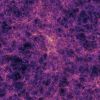 +3 +1
+3 +1Dark Energy May Not Exist: Something Stranger Might Explain The Universe
There might not be a mysterious 'dark' force accelerating the expansion of the Universe after all.
-
 +2 +1
+2 +1Stonehenge tale gets ‘weirder’ as Orkney is ruled out as altar stone origin
Weeks after revelation that megalith came from Scotland, researchers make surprise discovery
-
 +46 +5
+46 +5Stonehenge megalith came from Scotland, not Wales, ‘jaw-dropping’ study finds
Monument’s largest ‘bluestone’ moved more than 450 miles – a discovery researchers say rewrites relationships between Neolithic populations
-
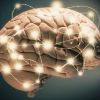 +21 +3
+21 +3Quantum Entanglement in Neurons May Actually Explain Consciousness
how various circuits throughout the brain align their firing is an enduring mystery, one some theorists suggest might have a solution that involves quantum entanglement.
-
 +2 +1
+2 +1The race to understand—and profit from—period blood
Why has it taken science so long to take it seriously?
-
 +26 +5
+26 +5Gobsmacking Study Finds Life on Earth Emerged 4.2 Billion Years Ago
Once upon a time, Earth was barren.
-
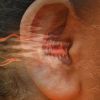 +26 +6
+26 +6We Used to Think Everybody Heard a Voice Inside Their Heads – But We Were Wrong
Only in recent years have scientists found that not everyone has the sense of an inner voice – and a new study sheds some light on how living without an internal monologue affects how language is processed in the brain.
-
 +29 +7
+29 +7Voynich Manuscript Finally Decoded? Medieval Sex Secrets May Hide in Mysterious Text
Sex may be one of the subjects detailed in the manuscript – and that the largest diagram represents both sex and conception.
-
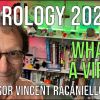 +22 +4
+22 +4Virology Lectures 2024 #1: What is a virus?
-
 +16 +2
+16 +2Uncovering Yerkes Observatory’s Forgotten Female Astronomers
It all started with a photo of Einstein.
-
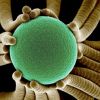 +34 +7
+34 +7Superlensing without a super lens: physicists boost microscopes beyond limits
Attempts to break the diffraction limit with “super lenses” have all hit the hurdle of extreme visual losses. Now physicists at the University of Sydney have shown a new pathway to achieve superlensing with minimal losses, breaking through the diffraction limit by a factor of nearly four times. The key to their success was to remove the super lens altogether.
-
 +49 +10
+49 +10How thinking in a foreign language improves decision-making
Research shows people who speak another language are more utilitarian and flexible, less risk-averse and egotistical, and better able to cope with traumatic memories
-
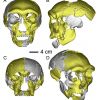 +36 +9
+36 +9Remains found in China may belong to third human lineage
A team of paleontologists has found evidence of a previously unknown human lineage. In their study, reported in Journal of Human Evolution, the group analyzed the fossilized jawbone, partial skull and some leg bones of a hominin dated to 300,000 years ago.
-
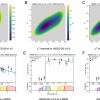 +4 +1
+4 +1James Webb Space Telescope finds possible evidence of dark stars
A trio of astrophysicists, two from Colgate University and the third from the University of Texas, has found evidence of dark stars courtesy of data from the James Webb Space Telescope. In their study, reported in Proceedings of the National Academy of Sciences, Cosmin Ilie, Jillian Paulin and Katherine Freese, analyzed three galaxies spotted by the JWST and how they might relate to dark stars.
-
 +26 +2
+26 +22,200 Forgotten Vintage Computers Are Being Liberated From a Barn in Massachusetts
The NABU Network was an obscure, forgotten part of Canadian tech history—until the day the internet noticed that thousands of NABU machines were being sold on eBay at rock-bottom prices.
-
 +11 +2
+11 +2Mathematicians Discover The Ninth Dedekind Number, After 32 Years of Searching
Undeterred after three decades of looking, and with some assistance from a supercomputer, mathematicians have finally discovered a new example of a special integer called a Dedekind number.
-
 +16 +3
+16 +3Dolphin moms use baby talk to call to their young, recordings show
You know instantly when someone is speaking to an infant or small child. It turns out that dolphin mothers also use a kind of high-pitched baby talk.
-
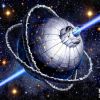 +4 +1
+4 +1Repeated signals from the center of the Milky Way could be aliens saying hello, new study claims
Could intelligent aliens be lurking at the heart of the Milky Way? A new search for extraterrestrial life aims to find out by listening for radio pulses from the center of our galaxy. Narrow-frequency pulses are naturally emitted by stars called pulsars, but they're also used deliberately by humans in technology such as radar.
-
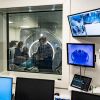 +6 +2
+6 +2Helsinki University makes Parkinson's disease breakthrough
Scientists at the University of Helsinki on Friday said they had demonstrated that certain strains of Desulfovibrio bacteria are probable causes (siirryt toiseen palveluun) of Parkinson's disease in most cases. This finding enables screening carriers of Desulfovibrio strains and subsequently removing the bacteria from the gut. This may make it possible to prevent Parkinson's disease.
-
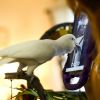 +26 +5
+26 +5Parrots learn to make video calls to chat with other parrots, then develop friendships, Northeastern University researchers say
Video chats like Zoom and FaceTime are great ways to stay in touch with loved ones—so great, in fact, that parrots are catching on. A new study from researchers at Northeastern University, in collaboration with scientists from MIT and the University of Glasgow, investigated what happened when a group of domesticated birds were taught to call one another on tablets and smartphones.
Submit a link
Start a discussion





















